Welcome to my website!
We live in turbulent times. One crisis follows the next. People have to digest ever bad news. Many are frustrated. Democracy-threatening right wing populism is on the rise.
But there are also extremely encouraging news: Germany is the first country to shut down the last nuclear power plant. The European Union has put an expiration date to the combustion engine – an historically unprecedented feat after 100 years of automobile society. Thousands of people demonstrate to safeguard democracy. These are glimmers of hope that the social-ecological transformation of society can still succeed in the next two decades. To finally make a Good Life possible for all people on the blue planet.
With my research, I would like to help making this opportunity possible. I work on the following five arenas of transformation:
Digital Transformation, Global Justice, Climate Policy, Sustainable Economics, and World Trade & Agriculture.
Enjoy reading and thinking ahead, and don’t forget: Another world is possible – let’s make it together!
Tilman
Digital Reset. Redirecting Technologies for the Deep Sustainability Transformation.
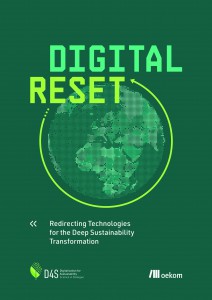 Governments around the world see digitalization as a solution to the pressing social and ecological crises of our time. At the same time, scientific evidence shows that digitalization tends to exacerbate many existing problems. In the report “Digital Reset. “Redirecting Technologies for the Deep Sustainability Transformation”, Tilman Santarius and a team of 15 renowned European experts present how a fundamental realignment of digitalization can be achieved at the European and national level so that it becomes compatible with a climate-neutral and future-fit social transformation path. Read more here…
Governments around the world see digitalization as a solution to the pressing social and ecological crises of our time. At the same time, scientific evidence shows that digitalization tends to exacerbate many existing problems. In the report “Digital Reset. “Redirecting Technologies for the Deep Sustainability Transformation”, Tilman Santarius and a team of 15 renowned European experts present how a fundamental realignment of digitalization can be achieved at the European and national level so that it becomes compatible with a climate-neutral and future-fit social transformation path. Read more here…
A Call for a Digital Green Deal
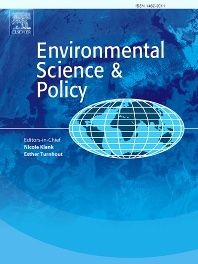 This article, written by Tilman Santarius and a team of interdisciplinary experts from various European Universities, calls for a Digital Green Deal that includes strong, cross-sectoral green digitalization policies on all levels of governance. We argue that such current digital policy initiatives, e.g. at EU level, should include measures that service environmental goals, and environmental policy initiatives must address risks and advance opportunities of digital technologies. The call for a Digital Green Deal is based on a broad and up-to-date review of the vast interdisciplinary literature on the relation between digitalization and environmental sustainability.
This article, written by Tilman Santarius and a team of interdisciplinary experts from various European Universities, calls for a Digital Green Deal that includes strong, cross-sectoral green digitalization policies on all levels of governance. We argue that such current digital policy initiatives, e.g. at EU level, should include measures that service environmental goals, and environmental policy initiatives must address risks and advance opportunities of digital technologies. The call for a Digital Green Deal is based on a broad and up-to-date review of the vast interdisciplinary literature on the relation between digitalization and environmental sustainability.
Smart Green World? Making Digitalization Work for Sustainability
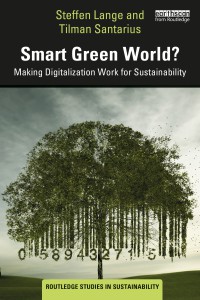 The digital revolution is currently changing the daily lives of billions of people worldwide. It is also disrupting the economy, generating new opportunities and creating new challenges. Yet can the much-discussed disruption potential of digitalization be harnessed for the purpose of sustainability? Can digitization help achieving a social and environmental transformation of society? The book “Smart Green World” provides guiding principles for a sustainable digitalization and develops hands-on policies and proposals how to achieve those.
The digital revolution is currently changing the daily lives of billions of people worldwide. It is also disrupting the economy, generating new opportunities and creating new challenges. Yet can the much-discussed disruption potential of digitalization be harnessed for the purpose of sustainability? Can digitization help achieving a social and environmental transformation of society? The book “Smart Green World” provides guiding principles for a sustainable digitalization and develops hands-on policies and proposals how to achieve those.
A former version of the book has been published in German, see here.
Video on the results of the book
Tilman Santarius and Steffen Lange presenting key findings from their book “Smart Green World?”
Digital Sufficiency: Conceptual Considerations for ICTs on a Finite Planet.
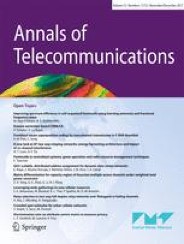 Information and Communication Technologies hold significant potential to increase resource and energy efficiencies and contribute to a circular economy. This article by Tilman Santarius and 9 others international authors in the Annals of Telecommunications for the first time develops the concept of Digital Sufficiency, which constitutes a basis to understand how ICT can become part of a deep sustainability transformation. The conceptual work builds on five years of multidisciplinary empirical and theoretical work on digitalization and sustainability. The article manifests four dimensions of Digital sufficiency – hardware sufficiency, software sufficiency, user sufficiency, and economic sufficiency – and presents a set of strategies and policy proposals for each.
Information and Communication Technologies hold significant potential to increase resource and energy efficiencies and contribute to a circular economy. This article by Tilman Santarius and 9 others international authors in the Annals of Telecommunications for the first time develops the concept of Digital Sufficiency, which constitutes a basis to understand how ICT can become part of a deep sustainability transformation. The conceptual work builds on five years of multidisciplinary empirical and theoretical work on digitalization and sustainability. The article manifests four dimensions of Digital sufficiency – hardware sufficiency, software sufficiency, user sufficiency, and economic sufficiency – and presents a set of strategies and policy proposals for each.
Slow Trade – Sound Farming. A Multilateral Framework for Sustainable Markets in Agriculture.
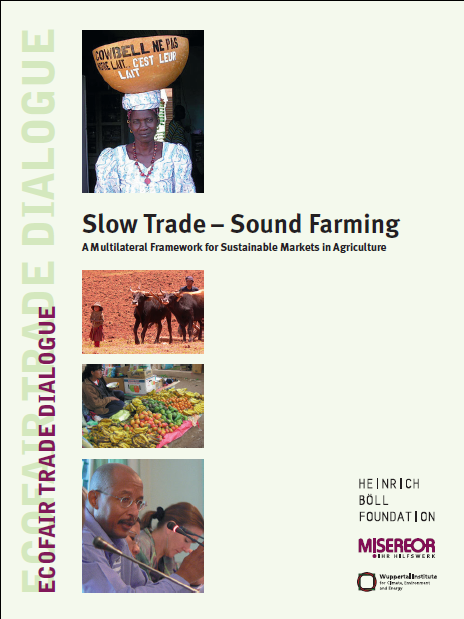 Together with ten internationally renowned experts, Wolfgang Sachs and Tilman Santarius outline an alternative to agricultural trade policies of the World Trade Organization. The report points to new perspectives and policies needed for the agricultural trading system that provide the poor with real opportunities, protect the environment and support the transition of agriculture into a post-fossil age. Here is the original version of the report Slow Trade – Sound Farming in English von Slow Trade – Sound Farming, which has also been published in German, French, Spanish, Arab, Czech, Polish, Portuguese, Indonesian, and Italian.
Together with ten internationally renowned experts, Wolfgang Sachs and Tilman Santarius outline an alternative to agricultural trade policies of the World Trade Organization. The report points to new perspectives and policies needed for the agricultural trading system that provide the poor with real opportunities, protect the environment and support the transition of agriculture into a post-fossil age. Here is the original version of the report Slow Trade – Sound Farming in English von Slow Trade – Sound Farming, which has also been published in German, French, Spanish, Arab, Czech, Polish, Portuguese, Indonesian, and Italian.
Rethinking Climate and Energy Policies.
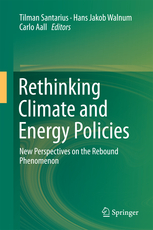 This volume, edited by Tilman Santarius, Hans Jakob Walnum and Carlo Aall, suggests rethinking current climate, energy and sustainability policy-making by presenting new insights into the rebound phenomenon. It offers new aspects in rebound economics, but then explores multidisciplinary perspectives on the phenomenon. The volume puts rebounds into praxis and presents several policy cases and sector-specific approaches, including labour markets, urban planning, tourism, information and communication technologies, and transport. It finally embeds the issue into the larger debate on decoupling, green growth and degrowth, and sketches out lessons learned for sustainable development strategies and policies at large.
This volume, edited by Tilman Santarius, Hans Jakob Walnum and Carlo Aall, suggests rethinking current climate, energy and sustainability policy-making by presenting new insights into the rebound phenomenon. It offers new aspects in rebound economics, but then explores multidisciplinary perspectives on the phenomenon. The volume puts rebounds into praxis and presents several policy cases and sector-specific approaches, including labour markets, urban planning, tourism, information and communication technologies, and transport. It finally embeds the issue into the larger debate on decoupling, green growth and degrowth, and sketches out lessons learned for sustainable development strategies and policies at large.
Fair Future. Limited Resources and Global Justice.
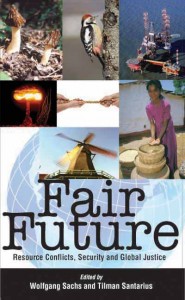 Oil crisis, water conflicts, declining food security – we hear one report after another about resource scarcity – while with growing populations and huge poverty, nations are demanding their right to development. Clashes over resources, both major and minor, are often the unseen factor behind chaos and violence and it is vital to start thinking about how the distribution of resources can be made more just. This book, written by specialists from the internationally renowned Wuppertal Institute headed by Wolfgang Sachs and Tilman Santarius, puts forwards perspectives for resource justice and outlines a global economic and environmental policy equally committed to nature and to humanity.
Oil crisis, water conflicts, declining food security – we hear one report after another about resource scarcity – while with growing populations and huge poverty, nations are demanding their right to development. Clashes over resources, both major and minor, are often the unseen factor behind chaos and violence and it is vital to start thinking about how the distribution of resources can be made more just. This book, written by specialists from the internationally renowned Wuppertal Institute headed by Wolfgang Sachs and Tilman Santarius, puts forwards perspectives for resource justice and outlines a global economic and environmental policy equally committed to nature and to humanity.
Energy efficiency, human behavior, and economic growth
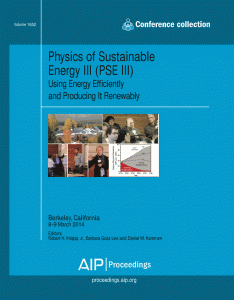 Increasing energy efficiency in households, transportation, industries, and services is an important strategy to reduce energy service demand to levels that allow the steep reduction of greenhouse gases. Yet, technological efficiency improvements may generate so-called rebound effects, which may ‘eat up’ parts of the technical savings potential. This chapter in the “Physics for Sustainable Energy II conference proceedings” provides a comprehensive review of existing research on these effects, raises critiques, and points out open questions. As a rough “rule of thumb”, about half the savings potential of energy efficiency improvements may be ‚eaten up’ by rebound effects.
Increasing energy efficiency in households, transportation, industries, and services is an important strategy to reduce energy service demand to levels that allow the steep reduction of greenhouse gases. Yet, technological efficiency improvements may generate so-called rebound effects, which may ‘eat up’ parts of the technical savings potential. This chapter in the “Physics for Sustainable Energy II conference proceedings” provides a comprehensive review of existing research on these effects, raises critiques, and points out open questions. As a rough “rule of thumb”, about half the savings potential of energy efficiency improvements may be ‚eaten up’ by rebound effects.
Economy of Sufficiency
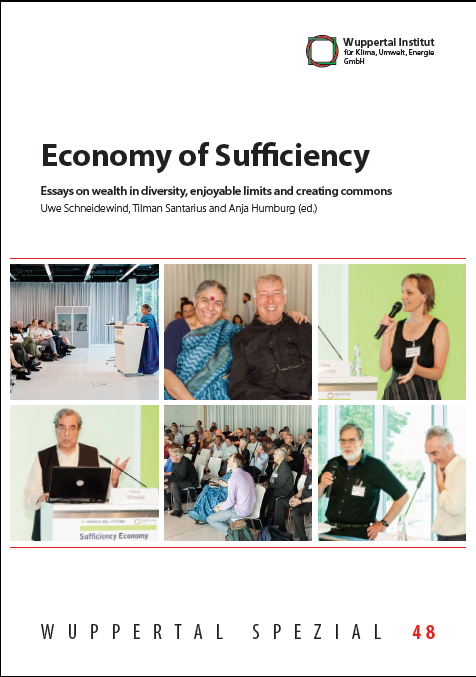 Can we conceive an economy, and respective economic institutions, that serve human needs and wealth without a built-in necessity to grow? This question has been addressed by a symposium in honor of Wolfgang Sachs. Uwe Schneidewind, Tilman Santarius and Anja Humbug edit the main contributions to this symposium in the reader Economy of Sufficiency – Essays on wealth in diversity, enjoyable limits, and creating commons. The essays by Ashok Khosla, Marianne Gronemeyer, Vandana Shiva, Richard Norgaard, Tim Jackson, Ezio Manzini and Silke Helfrich indicate the historical development of the ideas on a sufficiency economy and display an intellectual ‘tour de raison’ through discourses of sustainable development of the past several decades.
Can we conceive an economy, and respective economic institutions, that serve human needs and wealth without a built-in necessity to grow? This question has been addressed by a symposium in honor of Wolfgang Sachs. Uwe Schneidewind, Tilman Santarius and Anja Humbug edit the main contributions to this symposium in the reader Economy of Sufficiency – Essays on wealth in diversity, enjoyable limits, and creating commons. The essays by Ashok Khosla, Marianne Gronemeyer, Vandana Shiva, Richard Norgaard, Tim Jackson, Ezio Manzini and Silke Helfrich indicate the historical development of the ideas on a sufficiency economy and display an intellectual ‘tour de raison’ through discourses of sustainable development of the past several decades.
Rethinking food security strategies in times of climate change
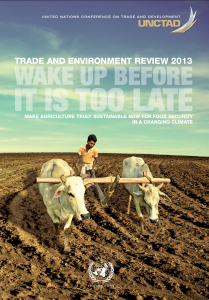 Since the 1980s, policies concerning food security have been increasingly trade-oriented. Yet for bulk of rural economies in developing countries, particularly for small farmers, this strategy did not deliver. This article by Christine Chemnitz and Tilman Santarius in the UNCTAD Trade and Environment Review outlines how the current pattern of agricultural trade and production can be modified in order to stop the vicious circle of increased trade-orientation exacerbating climate change, and increased climate change endangering small farmers’ food security. It then presents policies for a regionalization of agricultural trade flows and the integration of smallholders in local and regional markets.
Since the 1980s, policies concerning food security have been increasingly trade-oriented. Yet for bulk of rural economies in developing countries, particularly for small farmers, this strategy did not deliver. This article by Christine Chemnitz and Tilman Santarius in the UNCTAD Trade and Environment Review outlines how the current pattern of agricultural trade and production can be modified in order to stop the vicious circle of increased trade-orientation exacerbating climate change, and increased climate change endangering small farmers’ food security. It then presents policies for a regionalization of agricultural trade flows and the integration of smallholders in local and regional markets.
